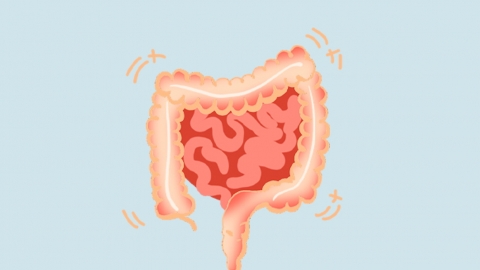What are the best treatment options for anal polyps?
Generally speaking, there is no specific best treatment for anal polyps. Anal polyps may be caused by factors such as an improper diet, long-term constipation or diarrhea, ulcerative colitis, chronic proctitis, Crohn's disease, and others. Treatment can be administered under a doctor's guidance using general or medication-based approaches. If discomfort occurs, timely medical consultation is recommended. Detailed analysis is as follows:

1. Improper Diet
Long-term consumption of high-protein, high-fat, and low-fiber foods can slow intestinal peristalsis, prolong fecal retention in the intestines, and increase irritation of the intestinal mucosa by harmful substances, leading to localized hyperplasia of the rectal mucosa and the formation of anal polyps. No specific treatment is required; instead, dietary adjustments should be made, including increased intake of fiber-rich fruits and vegetables such as spinach and apples.
2. Long-Term Constipation
Constipation causes dry feces to repeatedly rub against the rectal mucosa during defecation, resulting in mucosal damage and localized tissue hyperplasia that forms polyps. Medication is generally not required. In daily life, one should develop good bowel habits, defecate at regular times, and promptly treat constipation or diarrhea to prevent prolonged symptoms.
3. Ulcerative Colitis
Ulcerative colitis may be related to genetic, immune, and environmental factors. Disruption of the intestinal immune system attacks the intestinal mucosa, causing ulcers and inflammation. Long-term lesions stimulate the rectal mucosa, promoting polyp formation. Symptoms such as pus and blood in the stool, abdominal pain, and tenesmus may also occur. Treatment under medical guidance may include medications such as prednisone tablets, azathioprine tablets, and oxypurinol sodium capsules.
4. Chronic Proctitis
Chronic proctitis is often caused by bacterial or viral infections or intestinal flora imbalance. Long-term inflammation constantly stimulates the rectal mucosa, causing recurrent congestion and edema. During the healing process, abnormal proliferation of fibrous tissue can lead to the formation of anal polyps. Symptoms such as abdominal pain, diarrhea, and mucus in the stool may also occur. Treatment should follow medical advice and may include medications such as mesalazine enteric-coated tablets, sulfasalazine enteric-coated tablets, and compound berberine tablets.
5. Crohn's Disease
Crohn's disease may be associated with infection and immune factors. When the rectum is affected, inflammation and ulcers occur throughout the intestinal wall. During tissue repair, fibrous tissue proliferation leads to the formation of anal polyps. Symptoms such as abdominal pain, diarrhea, weight loss, and fistula formation may also occur. Treatment under medical guidance may include medications such as ciprofloxacin lactate injection, methotrexate tablets, and adalimumab injection.
In daily life, regular physical examinations are important, especially for individuals with a family history of intestinal diseases. Prolonged sitting should be avoided, and appropriate exercise should be performed to promote intestinal peristalsis. Maintaining a positive mindset and avoiding excessive mental stress that may affect intestinal function is also recommended.









